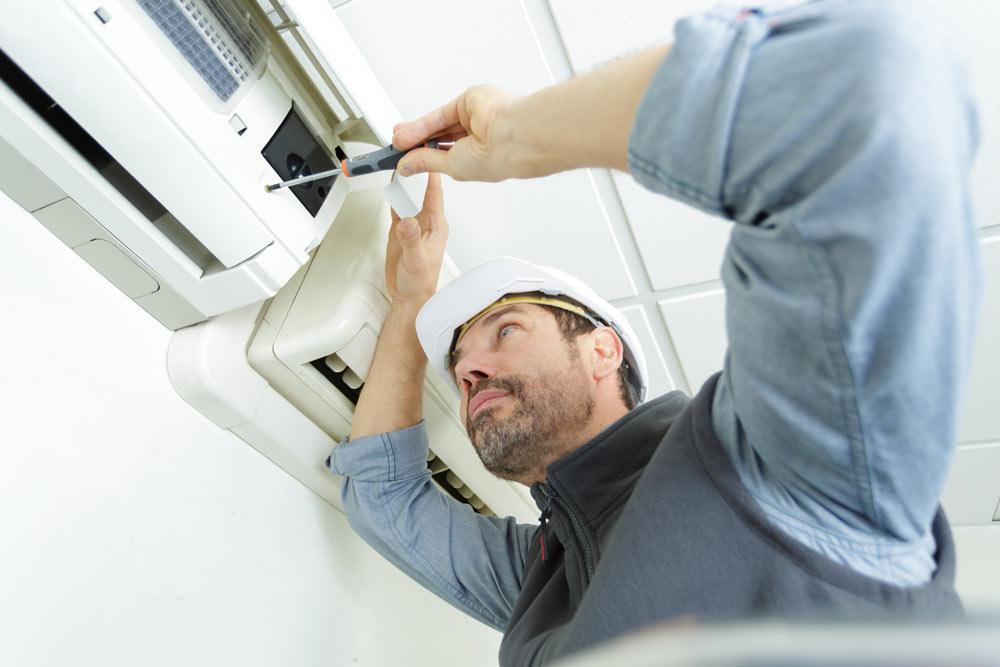Commercial cooling is essential to maintain comfort, efficiency and safety at work. This includes office buildings, warehouses, restaurants and data centres. These systems operate for long periods, especially during summer, and if neglected, can become inefficient. Regular maintenance of your HVAC system is not a suggestion. It is a necessity.
By following a maintenance schedule, companies can optimise the performance of their cooling equipment, reduce their electricity bills, prevent costly repairs, extend the lifecycle of their HVAC system and lower their costs. Find out how routine maintenance improves commercial cooling solutions.
1. Optimised Energy Usage
A poorly maintained cooling system will tend to use more power than is necessary. As dust builds up on coils, as well as clogged air filters and worn parts, the system is forced to work more to maintain temperature. It leads to higher electricity bills and increased usage.
Regular maintenance will help the system operate at maximum efficiency. A unit that is properly maintained can reduce energy use by as much as 15%.
Cleansing the evaporator/condenser coils maintains proper heat transfer. Cooling cycles are shorter and use less energy.
2. Costly Breakdowns Can Be Avoided
Unexpected breakdowns in cooling systems can be expensive and disruptive, especially for environments where product safety or integrity is important, such as data storage facilities or food storage areas.
Routine inspections allow technicians the opportunity to identify signs of wear before they become a system failure. Replacing a failed capacitor or belt is cheaper and easier than replacing the entire compressor.
It is important to perform proactive maintenance in order to save money as well as minimise downtime.
3. Extended Equipment Lifespan
Commercial HVAC is a substantial investment. Regular maintenance helps to protect this investment because it extends its life and reduces wear. If parts are regularly cleaned and lubricated, they are less susceptible to premature failure.
Key Maintenance Activities include:
- Checking and tightening electric connections
- Examining fan blades & motor bearings
- Cleaning air filters
- Verifying the level of refrigerant in your system and checking it for leaks
When businesses perform these tasks consistently, they can get many more years out of their equipment.
4. Improved Indoor Air Quality
The quality of the indoor air in commercial buildings such as offices and schools is just as important. Dirty ductwork and filters can circulate allergens like mould and dust in a building.
Regular maintenance includes changing filters and cleaning any parts that are in direct contact with the flow of air. This improves cooling performance and also creates an indoor air quality that is healthier for staff, customers, or visitors.
Air that is cleaner means fewer sick days and more productivity. It also makes the workplace a nicer place to work.
5. Consistent Cooling
Ever notice uneven temperatures within a commercial structure? Some rooms feel colder while others stay warm. This can be due to problems with airflow caused by dirty or obstructed filters, malfunctioning components, and obstructed vents.
Regular maintenance ensures airflow is balanced in all zones and the correct calibration of the system. This ensures that the cooling performance is consistent, the comfort of occupants is improved, and there are fewer complaints made by customers or employees.
6. Ensures Regulatory Compliance
You may be required, depending on your industry, to maintain certain standards in terms of air and indoor temperature. Regular HVAC upkeep helps to ensure compliance with regulations by organisations like OSHA. ASHRAE and the local health department.
This aligns your system with warranty terms. For instance, many manufacturers will require you to provide proof of continued maintenance before they honour a warranty claim.
7. Sustainability Goals
HVAC efficiency is becoming a more significant concern as companies strive to reduce environmental impact. Regular maintenance will help systems run more effectively, resulting in fewer carbon emissions and a lessened strain on the power grid.
Furthermore, the proper management of refrigerants in maintenance will help prevent harmful leaks from substances such as R-410A that contribute to greenhouse gas emissions.
Setting Up A Maintenance Schedule
To maximise the benefit of routine maintenance, you need to develop a professional service plan. Commercial HVAC experts typically recommend:
- Inspections every three months for systems in high demand
- Biannual servicing for general commercial usage (spring and fall).
- Regular filter changes or system inspections, depending upon air quality.
By partnering with a qualified HVAC company, you will receive thorough checks and detailed reports. This gives you peace of mind that your HVAC system operates efficiently.
Conclusion
Commercial cooling is essential to create a comfortable work environment. It doesn’t matter how good a system is if it isn’t properly maintained. Regular maintenance is key to ensuring consistency in performance, reducing your energy consumption, avoiding expensive breakdowns, and extending the life span of your equipment.
By investing regularly in HVAC maintenance, businesses protect not only their bottom line but also demonstrate their commitment to sustainability, safety, and operational excellence.


